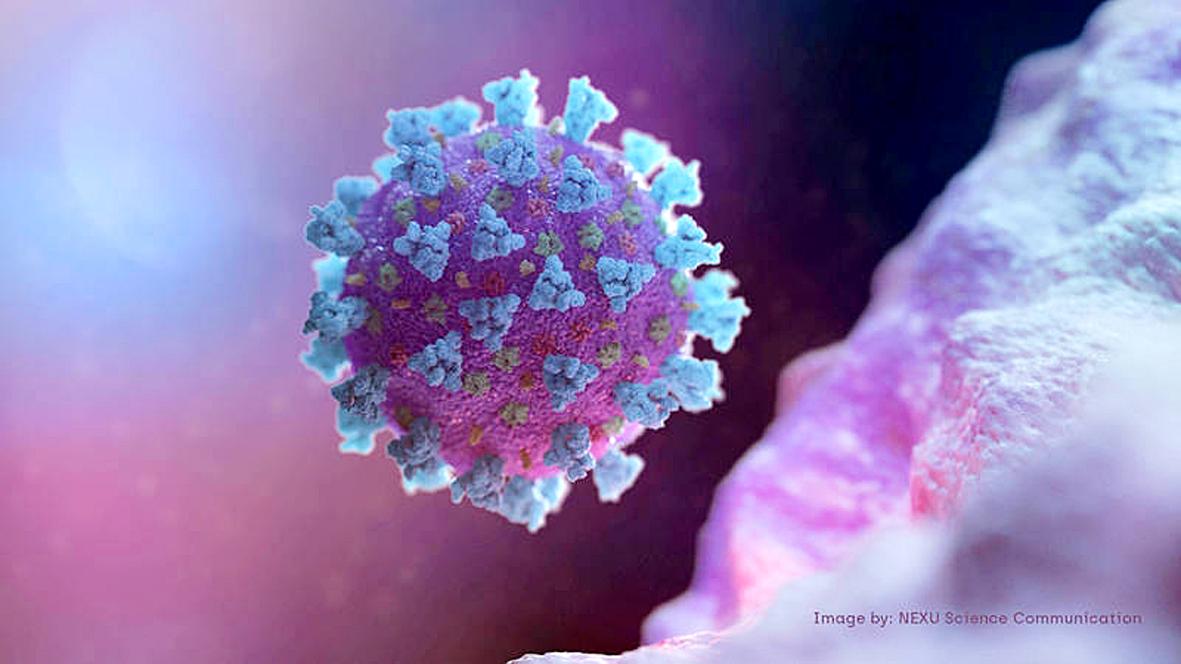The advent of the Omicron variant of COVID-19 has spawned a new genre of fantasy and science fiction in which males (invariably white) argue that it is an “opportunity” or that the government should open up and let the virus run its course. After all, Omicron is “mild,” as numerous studies are now showing, and even more so among the previously infected and/or vaccinated population.
It’s time, they argue, to accept that COVID-19 will be with us forever and re-open the country. The government must face reality, must “move from denial to acceptance” as one recent poster on LinkedIn put it. This prescription, widespread on social media, is a recipe for disaster.
A recent piece in the English-language media, for example, arguing that Omicron was an “opportunity,” came out at roughly the same time that a factory in Taoyuan had to shut down because some cleaners at the airport who became infected also worked at the factory. Nearly 400 workers at a food processing plant were also tested, same issue.

Photo courtesy of Mitake
VULNERABLE POPULATION
These connections emphasize not only the fact that Taiwan is heavily networked in ways that are not readily visible or predictable, but also the way that economic precarity and wage stagnation function to make society that much more vulnerable to the spread of new variants. There is no way someone with a critical cleaning job at the airport should be making so little that they are forced to work in a factory.
One can only imagine how many such closures would be necessary should Omicron rampage across Taiwan. Labor usage is tight, especially in the electronics sector, where foreign workers regularly work overtime shifts to cope with the “shortage” of imported labor (in reality, an unwillingness of local bosses to pay locals to fill the gap). The loss, temporary or permanent, of large numbers of workers to Omicron would be incredibly disruptive.

Photo: Reuters
People who argue that keeping the nation closed is bad for the tourism and several other sectors. They are entirely right. The alternative, however, is far worse.
But disrupted production in the critical export sector is only the beginning of the problem. As of this writing seven schools had been closed in Taoyuan. If Omicron spread widely, it is likely schools would have to close. After all, children in Taiwan are a relatively less vaccinated group, and many of them live with or are cared for by aged relatives, also a proportionately less vaccinated cohort.
Then there is health. The strident emphasis on “mild” Omicron is intended to obscure the issue of how many would be killed by this policy. “Real men,” after all, understand that omelets must result in broken eggs (for some elusive reason women seldom call for the trains to run on time over the bodies of their dead fellow beings).
The New York Times Pitchbot trenchantly satirized this view on Twitter the other day: “Thousands of Americans are dying from Omicron each week,” it observed. “The good news is that most of these deaths are mild.”
OVERWHELMED HOSPITALS
In the US and elsewhere, the “mild” Omicron wave has resulted in massive spikes in hospitalization. In recognition of this, last week the medical authorities here in Taiwan were already sending patients home in anticipation of the need for hospital beds.
The hospital system is set up on the fundamental principle that the number of hospital beds in a given region is determined by a formula based on its population. At any given time there are few slack resources in the system, which is one of the reasons medical tourism remains largely an unrealized dream.
This means that local hospitals can easily be swamped. When a cold wave hits there’s a sudden demand for medical services as people experience heart problems, as happened just last week. Slack in the system is needed for events like that. Imagine if Omicron has filled hospital beds across the island, and we have an episode similar to the water park explosion that burned so many children a few years ago, or the train accident in Hualien last year that resulted in over 250 injured. Where will the sick go?
LONG COVID
Moreover, any variant can spawn long COVID, with all its attendant problems, as the US CDC noted: “Long COVID can happen to anyone who has had COVID-19, even if their illness was mild, or if they had no initial symptoms.”
Long COVID has profound social costs. Sufferers need everything from routine treatments to double lung transplants, costs the health system will have to absorb, along with economic losses and the costs to the family of care at home.
Omicron on the loose means everyone not only gets to gamble against death, but also gets to play the long COVID lottery. Welcome to the omelet, eggs. Hope you can make your saving throw!
Can you get re-infected? Of course. Anyone really feel like playing the death and long COVID lottery twice? Three times? Me neither. But that is what we will all face if this “opportunity” is seized.
Recall that re-infection rates are orders of magnitude higher than the low numbers one sees, because many authorities will not accept another round of COVID-19 as a re-infection without genetic data showing a different version of the virus is responsible. But few labs, health systems or victims have the time and resources to meet that high bar.
I will not speak of the increased stress on health care workers, the depression, the exhaustion, suicides, the leaving of the industry and especially their high risk of infection and re-infection. After all, the Omicron-as-opportunity crowd doesn’t. For them, health care workers are just discardable resources whose existence is assumed rather than considered.
Every intelligent human can see that COVID-19 isn’t going to go away. The world isn’t going to return to the way it was, just as it didn’t after syphilis and tuberculosis and smallpox, until the advent of modern medicine.
That history suggests that it will be possible to return to some level of “normal” in the future when vaccinations are mandatory for all and medical science possesses an armory of reliable and inexpensive weapons against this disease.
That time certainly isn’t now.
Omicron, many epidemiologists have argued, is eventually going to infect all of us. That may be true, but it does not necessarily follow that we need to be infected right now, all of us at once. Keep Taiwan (Omicron) free!
Notes from Central Taiwan is a column written by long-term resident Michael Turton, who provides incisive commentary informed by three decades of living in and writing about his adoptive country. The views expressed here are his own.

Dissident artist Ai Weiwei’s (艾未未) famous return to the People’s Republic of China (PRC) has been overshadowed by the astonishing news of the latest arrests of senior military figures for “corruption,” but it is an interesting piece of news in its own right, though more for what Ai does not understand than for what he does. Ai simply lacks the reflective understanding that the loneliness and isolation he imagines are “European” are simply the joys of life as an expat. That goes both ways: “I love Taiwan!” say many still wet-behind-the-ears expats here, not realizing what they love is being an

Google unveiled an artificial intelligence tool Wednesday that its scientists said would help unravel the mysteries of the human genome — and could one day lead to new treatments for diseases. The deep learning model AlphaGenome was hailed by outside researchers as a “breakthrough” that would let scientists study and even simulate the roots of difficult-to-treat genetic diseases. While the first complete map of the human genome in 2003 “gave us the book of life, reading it remained a challenge,” Pushmeet Kohli, vice president of research at Google DeepMind, told journalists. “We have the text,” he said, which is a sequence of

Every now and then, even hardcore hikers like to sleep in, leave the heavy gear at home and just enjoy a relaxed half-day stroll in the mountains: no cold, no steep uphills, no pressure to walk a certain distance in a day. In the winter, the mild climate and lower elevations of the forests in Taiwan’s far south offer a number of easy escapes like this. A prime example is the river above Mudan Reservoir (牡丹水庫): with shallow water, gentle current, abundant wildlife and a complete lack of tourists, this walk is accessible to nearly everyone but still feels quite remote.

It’s a bold filmmaking choice to have a countdown clock on the screen for most of your movie. In the best-case scenario for a movie like Mercy, in which a Los Angeles detective has to prove his innocence to an artificial intelligence judge within said time limit, it heightens the tension. Who hasn’t gotten sweaty palms in, say, a Mission: Impossible movie when the bomb is ticking down and Tom Cruise still hasn’t cleared the building? Why not just extend it for the duration? Perhaps in a better movie it might have worked. Sadly in Mercy, it’s an ever-present reminder of just